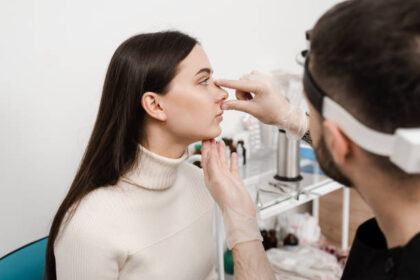After giving birth, every mother experiences a mix of emotions — happiness, love, stress, tiredness, and sometimes sadness. It’s normal to feel a little worried or overwhelmed. But when these feelings last too long or become too intense, they may be more than just “baby blues.”
Understanding the difference between baby blues and postpartum depression is important for every new mom and her family. Knowing the signs can help you take care of yourself better and get the support you deserve.
🤱 What Are Baby Blues?
Baby blues are common and mild mood changes that many mothers go through shortly after childbirth. They usually begin within 2–3 days after delivery and can last for up to 2 weeks.
These feelings are a normal part of the recovery process. They happen due to sudden hormonal changes, lack of sleep, and adjusting to your new routine as a mom.
🧠 Common Signs of Baby Blues:
-
Mood swings — feeling happy one moment and crying the next
-
Feeling emotional or weepy for no clear reason
-
Feeling anxious or restless
-
Difficulty sleeping, even when you’re tired
-
Feeling low energy, but still able to care for your baby
💬 Did You Know? About 70–80% of new moms experience baby blues. It’s nothing to feel ashamed of — it’s just your body and mind adjusting to big changes.
😔 What Is Postpartum Depression?
Unlike baby blues, postpartum depression (PPD) is more serious. It doesn’t go away on its own and can last for weeks or even months if untreated.
Postpartum depression can begin within a few weeks after childbirth, but it can also appear months later. It affects your ability to care for yourself and your baby. It’s not just stress or tiredness — it’s a real medical condition that needs professional help.
🚩 Signs of Postpartum Depression:
-
Feeling constantly sad or hopeless
-
Crying a lot without a clear reason
-
Losing interest in things you used to enjoy
-
Feeling like you’re not a good mother
-
Trouble bonding with your baby
-
Feeling disconnected from your baby or family
-
Sleeping too much or too little (even when the baby sleeps)
-
Having scary thoughts about harming yourself or the baby (in severe cases)
⚠️ These signs mean it’s time to speak to a doctor or a Postpartum Depression Therapist.
🕰️ Baby Blues vs. Postpartum Depression: A Quick Comparison
| Condition | When It Starts | How Long It Lasts |
|---|---|---|
| Baby Blues | 2–3 days after delivery | Up to 2 weeks |
| Postpartum Depression | Within a few weeks or months | Weeks to several months (if untreated) |
🩺 When Should You Seek Help?
It’s time to reach out for help if:
-
Your feelings of sadness, anxiety, or tiredness last longer than 2 weeks
-
Your symptoms get worse over time
-
You feel unable to take care of your baby or yourself
👉 Don’t wait — talk to a Postpartum Depression Therapist. Support is available, and you are not alone.
👩⚕️ How Can Momkidcare Help?
At Momkidcare, we understand the emotional and mental challenges new mothers face. You don’t have to go through this phase by yourself.
We offer:
💬 Postpartum Depression Counseling
Speak with Indian experts who truly understand your background and emotions. Get help in your language, from someone who gets your journey.
👩⚕️ Qualified Postnatal Psychologists
One-on-one personalized sessions with licensed experts who can guide you with care and professionalism.
🧘♀️ Postnatal Yoga and Lifestyle Guidance
Gentle yoga, breathing exercises, and lifestyle routines to help restore emotional balance and calm your mind.
🌐 Book a confidential session online — from the comfort and safety of your home.
👶 Related Support from Momkidcare
If you’re struggling with health, energy, or nutrition after childbirth, we also connect you with:
-
Certified Child Nutritionist
-
Expert Fertility Nutritionists for women planning to conceive again
-
Personalized Pregnancy Diet Plans from Indian nutrition experts
Our experts make your diet plan simple, tasty, and tailored to your postpartum recovery or fertility goals.
💬 Final Words
Being a mom is a beautiful journey — but it’s not always easy. Feeling emotional after childbirth is completely normal. But if your feelings are lasting longer, getting worse, or making it hard to care for yourself or your baby, it’s time to ask for help.
There is no shame in seeking support. In fact, it’s one of the bravest things you can do for yourself and your child.
💛 You’re not alone. You’re not weak. You’re a strong mom who deserves love, care, and support.
Let Momkidcare walk with you on this journey. Book a session with our Postpartum Depression Therapist today and take the first step towards healing.



